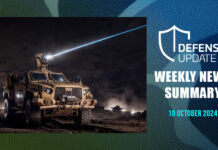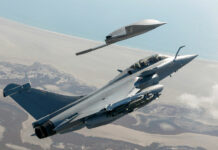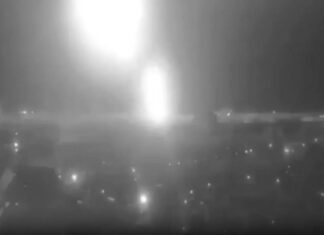 The U.S. Army is establishing an integrated intelligence fusion and analysis capability in Afghanistan, based on Palantir Technologies, Inc. information analysis systems. The work will be completed in 16 months. Palantier provides powerful tools for analysts to fuse unstructured and structured data items from different sources, into enhanced knowledge bases. Among the tools that are likely to be implemented in the new fusion center are described in a video created by the company.
The U.S. Army is establishing an integrated intelligence fusion and analysis capability in Afghanistan, based on Palantir Technologies, Inc. information analysis systems. The work will be completed in 16 months. Palantier provides powerful tools for analysts to fuse unstructured and structured data items from different sources, into enhanced knowledge bases. Among the tools that are likely to be implemented in the new fusion center are described in a video created by the company.
Palantir Technologies is establishing a new intel fusion capability supporting the U.S. Army in Afghanistan. As this video shows, the system supports not only the intelligence analysts but can also be extended via portable mobile Apps on hand held devices, to support the warfighter and commanders on patrols and in the field. The system can integrate with Blue Force Tracking (BFT), and augmented reality to improve situational awareness by providing access to intelligence and the unit’s aggregated information (TIGR) via touch screen.
The system presented in the video below supports information flow from the bottom up, ensuring that the critical knowledge gained on the ground reaches all who need to know. It combines data on insurgent groups and local populations into one common operating picture, enriching traditional intelligence with the insights of ‘human terrain’ knowledge on local leaders, UN and non governmental organization (NGO) operations in the area, provincial reconstruction teams, and civil affairs operations, providing a framework for collaboration in remote and austere environments.
The system supports powerful fusion of intelligence and operations when the ‘Palantir Mobile’ is combined with analysts using Palantir at a tactical operations center. An operations center analyst using Palantir is able to conduct complex analyses in real-time utilizing information coming directly from the Palantir Mobile user in the field in the form of text or geo-tagged images.
Another video presentation developed by Palantir demonstrates how information obtain from open sources could assist military commanders deployed on missions in Afghanistan. The integration of such systems with military information from operations, intelligence, and the unit’s own collection of patrol reports, check-posts, and other security and civil affairs operations can provide an extremely valuable resource as well as effective means for maintaining information continuity by different personnel, analysts, commanders and units.
















